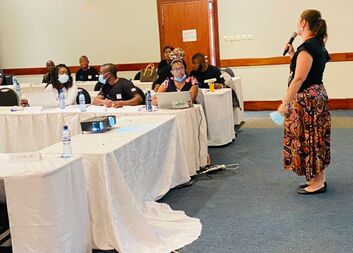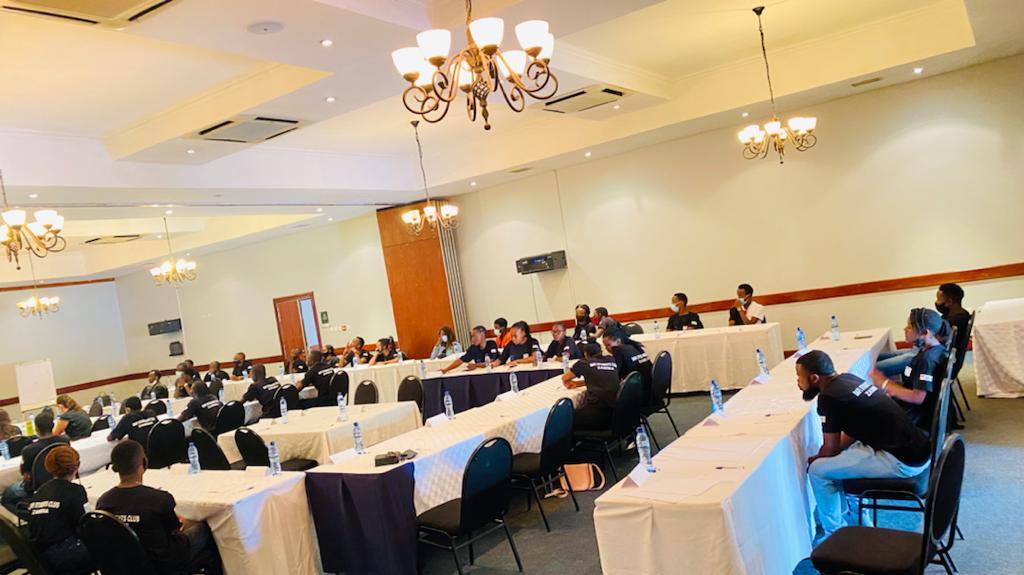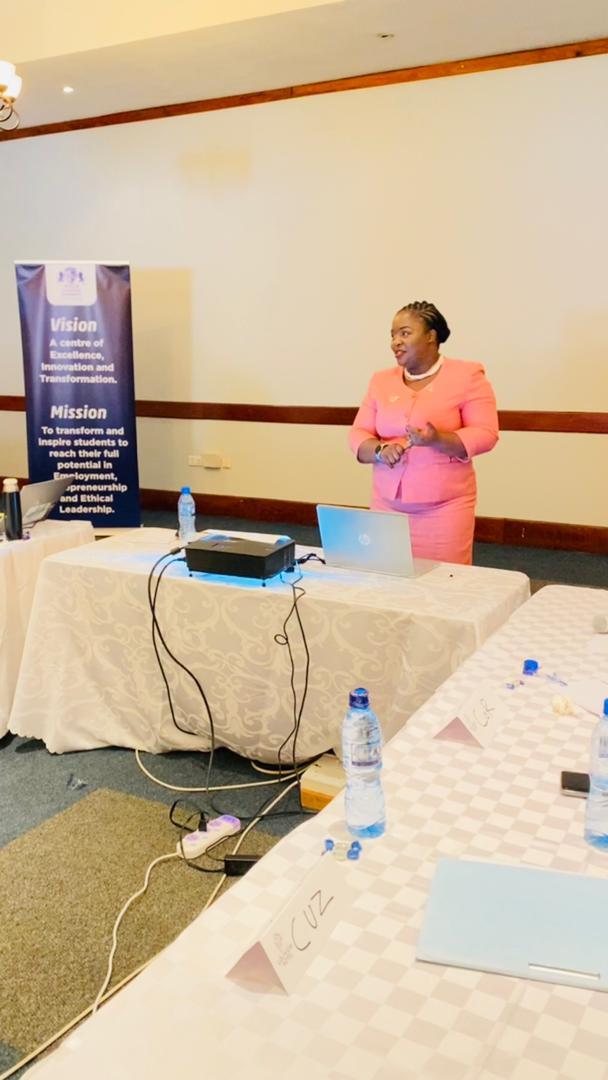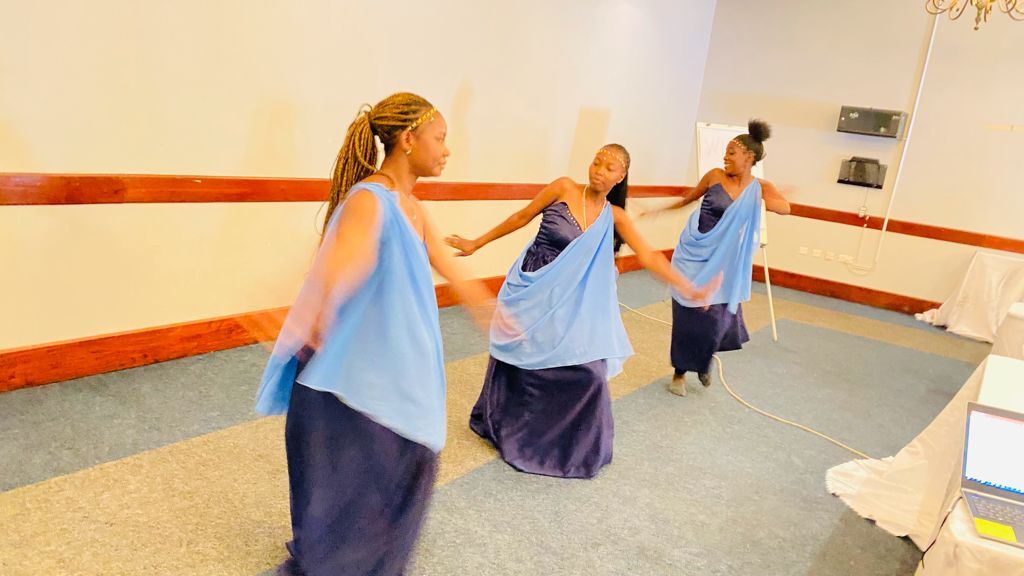Education is very important, but it is not always easily accessible, especially for refugees who cannot afford the university tuition fees. But for refugees in Zambia, the story is different as they can take advantage of the DAFI scholarship programme that offers refugees the opportunity to pursue a university degree.
HOW DAFI HELPS REFUGEE STUDENTS
Zambia recently announced a free education policy again but only at the primary and secondary school levels. This means university education becomes expensive and unaffordable for most refugees and across refugee-hosting communities, barriers to higher education prevent thousands of young refugee women and men from accessing advanced training, opportunities to pursue research, develop skills and earn qualifications.
But there is still hope for them. This hope is being brought to them by the Albert Einstein German Refugee Academic Initiative - DAFI which enables refugees to follow their dreams and study at university in whatever field they would like.
The UNHCR’s and Caritas Czech Republic in Zambia under the DAFI programme supports vulnerable refugees in Zambia through advocacy, technical expertise, financing and preparatory support to overcome these barriers. This year, we have 61 students through this programme.
Some higher education institutions like Cavendish University in Zambia are going the extra mile to identify where policies can be adapted to address the barriers that refugee students face. In-kind scholarships, and fee waivers to ensure finance is not the decisive barrier, are two examples Cavendish University is helping the students.
THE DAFI ANNUAL WORKSHOP
Earlier this November, the Albert Einstein German Academic Refugee Initiative (DAFI) programme under UNHCR and the Caritas Czech Republic in Zambia held its annual workshop in Lusaka under the theme “Creating employment Pathways and Opportunities for Refugee Graduates”.
The workshop aimed at encouraging, mentoring the students, and discussing some of the issues they are facing as students and graduates.
The workshop brought together current students as well as graduates, lecturers and NGO representatives, such as Caritas Czech Republic’s Country Director in Zambia Stefania Lagonigro. The trainers spoke to the students about entrepreneurship, employment and education and gave them tips on CV writing.
Tiwonge Zyambo, a lecturer at Cavendish University Zambia and a trainer at the workshop, advised the students on how they can become more employable and market-relevant by gaining the necessary skills. She urged them to make sure that wherever they go they should leave a positive impact.
“Success is the manifestation of the impact you have had on those that cross your path and those who have come into contact with you,” she said.
STEPPING OUT OF YOUR COMFORT ZONE
During the workshop, the DAFI alumni expressed their gratitude for the DAFI programme and encouraged the students to step out of their comfort zones.
“It’s not easy to get a good job when you are a refugee. The major challenge is getting a work permit and fluency in English is also another challenge,” said Fransisca, one of the DAFI alumnus.
Francisca has not experienced that challenge herself because she has lived in Zambia for over 28 years and is conversant in English and many other Zambian languages, but she understands the issues other refugees are dealing with when trying to obtain higher education and finding jobs.
She encouraged the students from the employment point of view, to step out of their shells and follow their dreams. Expose themselves to the industry further urging the Caritas Czech Republic to step in on confidence-building.
Another DAFI alumnus, Jeremie Bahati shared his experience with integrating business and investment. According to him, it’s very difficult for refugees because of the permit fees and issues of exploitation.
“My personal experience in business and investments is that it is very hard to manage a business as a refugee because the profits and income are never enough,” said Jeremie Bahati. Thanks to the DAFI scholarship, he was able to obtain his university degree and despite all challenges start a business in Zambia.

Front Right Jeremie Bahati, DAFI scholarship programme student alumnus
Jeremie encouraged the students who are currently on the DAFI scholarship programme to start their businesses and entrepreneurial journey when they are still in school, to learn all the techniques and skills that are important for the business they wish to start.
CHALLENGES dURING COVID-19 PANDEMIC
Due to the closure of higher education institutions in March 2020 and the subsequent move to online learning, Caritas Czech Republic facilitated a support system for students to share information on courses and study materials.
This has helped many refugee students to access study materials and many university platforms. In 2020, the DAFI clubs in Zambia conducted a series of meetings to discuss persistence, problem-solving and self-preservation in the time of COVID-19, World Refugee Day participation, employment preparation, CV and entrepreneurship, community engagement and DAFI Annual Workshop planning.
At this year’s annual workshop, the discussions on employment, entrepreneurship, and CV writing continued because most of the students have been facing challenges finding employment and internships after graduating.
HOPE FOR REFUGEES IN ZAMBIA
The students at the workshop showed that despite all the challenges they face in finding scholarships and employment in Zambia, they still have hope that better days are yet to come.
This was reechoed in the poem they performed, titled “There Is Hope”, which highlighted the challenges they face in trying to attain an education, good healthcare services, sanitation and access to clean water but despite all these problems, they still have hope.
Indeed, there is hope for the refugees in Zambia because Zambia has always been a safe haven for refugees.
People who leave their countries of origin due to various reasons that include war, climate change issues and the like often face many issues that include discrimination, lack of education and entrepreneurship opportunities in their host countries.
But for the refugees in Zambia, the story is different. Their hopes are constantly being restored and opportunities for them to go to school have been made available through the DAFI scholarship.
Call to Action
The DAFI Annual Global report for 2020, says in 2018, the international community affirmed the Global Compact on Refugees (GCR) as a framework for all stakeholders to coordinate, partner and innovate to ensure adequate responsibility-sharing with host communities and enhanced support so that refugees can lead productive lives.
In 2019, the global Refugee Forum (GRF) convened in solidarity with the world’s refugees and the countries and communities that host them. The forum resulted in over 200 pledges specific to education, with over 70 focused on higher education, spanning skills development, career readiness, scholarships, financial support and inclusive education policy.
Translating pledges into action, stewarding additional partners to join the global alliance promoting refugee access to higher education, and monitoring progress are critical to achieving 15by30. Everyone can take part in this monumentally important effort by creating admission pathways, meaningful partnerships, accessibility and inclusion, financial inclusion, policy and advocacy monitoring and reporting.








